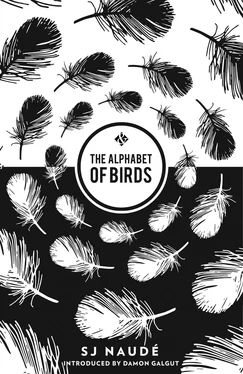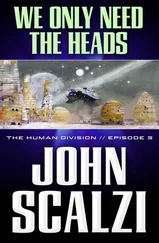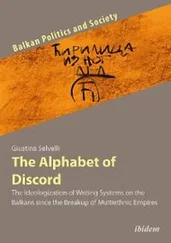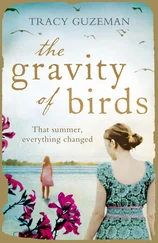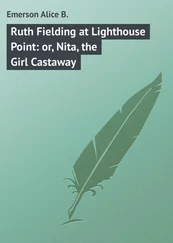As he walks to his car after the performance, someone calls from behind. ‘Excuse me?’
He stops, turns around, observes him. It is he, the soldier, hair now loose over his shoulders. Shirted. Sandals on his feet. Surrounded by light. Everything about him now in fact different. Around twenty-one, he would guess. Instantly, there is a quivering, unsteady kind of dynamic between them.
‘Yes?’
He loses his nerve, the young man, clearly unsure how to proceed. ‘I saw you,’ is all he says. ‘In the second row.’
He smiles at the actor. He can come to his aid, can compliment him honestly, albeit stiffly.
‘Congratulations, it was good. Such a closed character, so many internal shifts. The choreography gave you a potent vehicle.’
‘I’m Sam.’ His hair is shiny and black. A mane like Samson’s.
He introduces himself, invites Sam for coffee. The young man ponders the invitation for a moment, his eyes full of light and obstinacy. ‘How about the Botanical Gardens?’ Sam says.
He shrugs his shoulders, smiles slightly. ‘Why not?’
‘Come, get on,’ Sam says. He is pointing at a motorised scooter.
He raises his hand. ‘My car is here—’
‘Come on,’ says Sam. He smiles with white teeth. ‘Come and feel the wind.’
Sam takes out two helmets from the Vespa’s luggage box. Old-fashioned ones. Silver. Leather straps fastening under the chin, like war helmets. They get on.
‘Ready?’ asks Sam, and pulls away without waiting for an answer. Sam is a good twenty years younger than he is, he thinks. He has to laugh at himself. Just yesterday, so it feels, he was still young too. And where is he now, after a minute’s conversation with a young stranger? (Well, plus an hour-long prelude in the auditorium.) Like a dirty old(er) man against Sam’s warm back, behind him on the Vespa. Sam with his perfectly round little buttocks on the saddle. The two of them elated in the exhaust fumes. The scooter is not that fast, but the warm currents blow Sam’s hair in all directions from under the helmet. It flicks like a feather duster across his own face.
They stop at a petrol station, buy things to eat and drink. They continue. Through Sam’s hair, which is blowing onto his face, he observes the dismal suburbs, the walls and barbed wire. It feels as if he has never been in this city before. They walk deep into the Botanical Gardens, to a shadowy spot, a waterfall. When they sit down, he again becomes aware of his age, of the difference between them. He mentions it, playfully.
‘Age,’ Sam says, his hair in full sunlight, ‘what’s age?’, and shrugs his shoulders.
He is starting to like Sam.
It is a weekday afternoon. There is no one else here. The sun is falling in at an angle through the leaves. The waterfall’s spray is floating lazily in the shafts of light. Falling seeds nestle in the folds of their clothes. They are lying on the grass, elbows behind their heads.
‘It’s a joke,’ Sam says, ‘to work in the university’s theatres.’
Sam tells him about the piles of dusty old stage props lying around behind the stage, thigh-deep.
‘Every time you go on stage, you have to scramble over the piles of stuff. Pretty risky. In this show I had to wait on all fours on Jesus before coming on. The spaghetti Jesus, we call it. Just lying there, life-size, on a plastic cross, woven from rattan. Like a big empty basket.’
He looks at the falling water, water that will never again flow over the same rocks. Later on, they walk further up the hill. The whirring of an engine becomes audible. The water, he realises, is being circulated; it flows up the mountain and then down again, in a closed cycle. Sam hops across the rocks like a mountain goat. He is not far behind. He wonders whether all the rocks are real, knocks on a few of them.
A week later, Sam invites him to see another performance he is in and that he also choreographed. It is better than the previous one. Sam goes through surprising transformations. His hair hangs in wild curls over his shoulders. He is animal-like, with a Tarzan cloth around his loins. Stripes of warpaint adorn his cheeks and torso. Sometimes he flattens himself and creeps like a cat. At one point his arms become as long as the tentacles of an octopus. Joined together with a group of dancers, he forms an anemone that bursts open in a tangle of hands and elbows. He lies on his back and propels himself with his feet, spins and throws himself down so that one can hear (or thinks that one hears) bones cracking. He hangs from a rope by his feet, swaying, dipping his hair in paint and painting patterns across the stage. For a while, his tracks look like Sanskrit letters, but, as he continues swinging, they become denser, like ancient marks: the alphabet of a heavy-footed species. One of the dancers dips himself in the paint and, as they rub up against each other, colour spreads from body to body. Skin to skin. While he is watching, he thinks of his own mute, non-writing body.
‘Like wood,’ he described it to Sam in the Botanical Gardens, making him laugh. What he did not add, what Sam would find out for himself, was: my body does have its moments. Physical love shocks me into suppleness, administers a tiny current of electricity. In a flash, it teaches me new tricks, makes me adept. A Pinocchio I may be, but sometimes, for a few minutes, I enter the world of humans.
‘So, where does it come from, the ways you writhe and wriggle: what would you say is the source?’
The performance over, they are sitting in a coffee shop. Sam is visibly exhausted.
‘You search around, I guess.’ Sam shrugs his shoulders; a fist against his chest indicates where he tends to search. ‘You remember stuff.’
‘Such as?’
Without a moment’s hesitation, Sam tells him in detail about his family background. He has never known his father. The latter, so he has pieced together from various accounts, has been in and out of mental institutions his entire life. In the performance in which he was a soldier, he kept his (imagined) father in his mind to propel his movements. He continues. In the seventies, before he was born, his mother had a relationship with a married white man. In the account he had heard, she moved in with him, worked as a maid and bore him two children, living with the man and his wife as a kind of family. Each time she became pregnant, she had to be admitted to a mental institution. Both times she intended to either abort the child or give it up for adoption, only changing her mind at the last moment.
‘With such parents, I have to wonder about my own genes,’ Sam says with a smile. ‘But maybe, if my body keeps moving, then I could avoid going on their kind of bad trips.’
He is curious, but is hesitant to ask about the racial issue, the fact that Sam grew up as an Indian boy with two whiter children. He still carries in him the ossified sensitivities of the South Africa of his youth. He does not trust that he will get the tone right, even though Sam is a post-apartheid child. He would also want to ask Sam how it feels to attend this university, which still hosts mostly spoilt white students.
‘One shouldn’t be too full of stuff, though; you must become a vessel, a basket into which audiences can load everything they want to. You sacrifice yourself when you perform. There has to be enough space.’
Sam takes him on the scooter to his home at the edge of the city, in a walled residential complex that has recently been developed on a pale stretch of veld. Houses are dotted around, with open patches of grass and building sites in between. Some of the open plots are black and velvety, the grass having been burnt off. They stop in front of a small townhouse.
Sam makes tea in mugs. They go out into a little walled garden. A warm, quiet winter’s afternoon. A square of faded wintry grass rustling beneath their feet, a square of blue sky above them. They sit down on a cotton cloth that Sam has spread out. Behind the walls there is the droning of a highway.
Читать дальше
